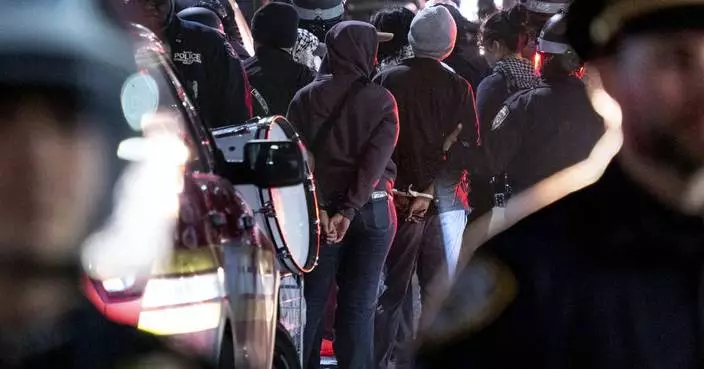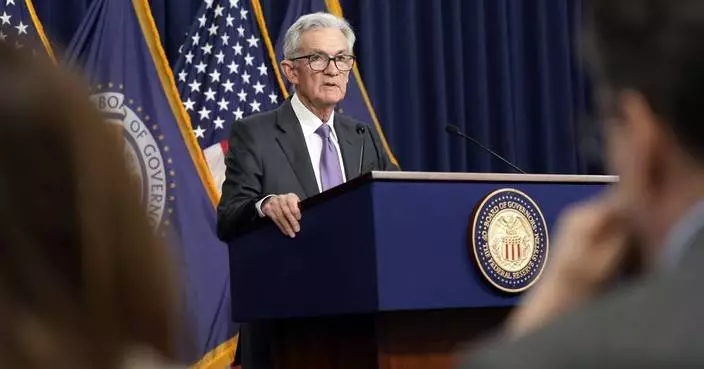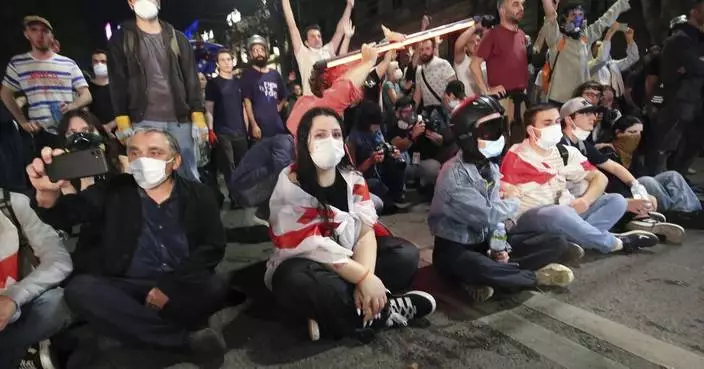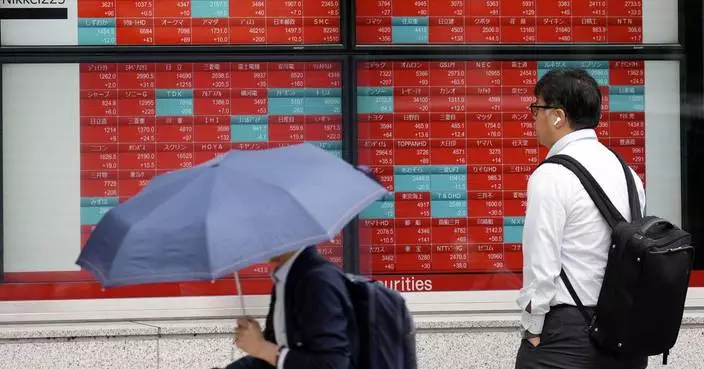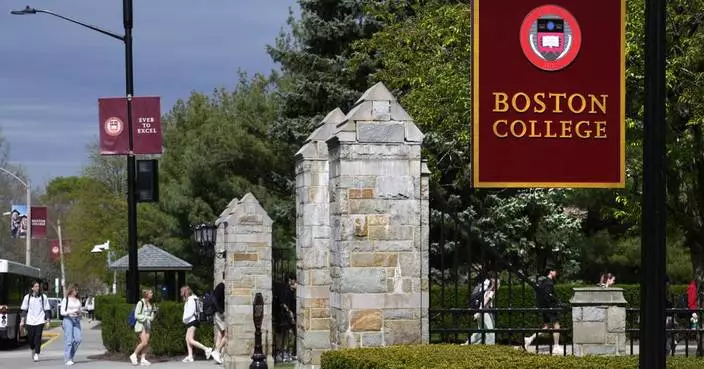SEOUL, South Korea (AP) — The United States and its allies are discussing options “both inside and outside the U.N. system” to create a new mechanism for monitoring North Korea over its nuclear weapons program, the American ambassador to the United Nations said Wednesday.
Russia last month vetoed a U.N. resolution in a move that effectively abolished monitoring by U.N. experts of Security Council sanctions against North Korea, which prompted Western accusations that Moscow was acting to shield its arms purchases from North Korea to fuel its war in Ukraine.
Click to Gallery
SEOUL, South Korea (AP) — The United States and its allies are discussing options “both inside and outside the U.N. system” to create a new mechanism for monitoring North Korea over its nuclear weapons program, the American ambassador to the United Nations said Wednesday.
U.S. Ambassador to the United Nations Linda Thomas-Greenfield speaks during a press conference at the American Diplomacy House in Seoul Wednesday, April 17, 2024. (Jung Yeon-je/Pool Photo via AP)
U.S. Ambassador to the United Nations Linda Thomas-Greenfield speaks during a press conference at the American Diplomacy House in Seoul Wednesday, April 17, 2024. (Jung Yeon-je/Pool Photo via AP)
U.S. Ambassador to the United Nations Linda Thomas-Greenfield speaks during a press conference at the American Diplomacy House in Seoul Wednesday, April 17, 2024. (Jung Yeon-je/Pool Photo via AP)
U.S. Ambassador to the United Nations Linda Thomas-Greenfield speaks during a press conference at the American Diplomacy House in Seoul Wednesday, April 17, 2024. (Jung Yeon-je/Pool Photo via AP)
U.S. Ambassador to the United Nations Linda Thomas-Greenfield speaks during a press conference at the American Diplomacy House in Seoul Wednesday, April 17, 2024. (Jung Yeon-je/Pool Photo via AP)
“I look forward to engaging with both the Republic of Korea and Japan, but like-minded (countries) as well, on trying to develop options both inside the U.N. as well as outside the U.N. The point here is that we cannot allow the work that the panel of experts were doing to lapse,” U.S. Ambassador Linda Thomas-Greenfield told a news conference in Seoul, using the formal name for South Korea.
Thomas-Greenfield didn’t provide specific details about U.S. discussions with allies and other partners, including whether an alternative monitoring regime would more likely be established through the U.N. General Assembly or with an independent entity outside of the U.N.
Thomas-Greenfield met with South Korean Foreign Minister Cho Tae-yul on Monday and they discussed unspecified “next steps to ensure a continuation of independent and accurate reporting” of North Korea’s illicit weapons development activities, according to her office.
Thomas-Greenfield said it was clear that Russia and China, which abstained from voting on the U.N. resolution vetoed by Moscow, will continue to try to block international efforts to maintain monitoring of U.N. sanctions against North Korea. She criticized Russia for violating those sanctions with its alleged arms purchases from North Korea, and China for protecting the North from being held accountable.
Moscow and Beijing have thwarted U.S.-led efforts to tighten U.N. sanctions on North Korea over its ramped-up ballistic missile testing since 2022, underscoring a divide between permanent Security Council members that deepened over Russia’s war on Ukraine.
“I don’t expect that they will cooperate or agree with any efforts that we make to find another path, but that is not going to stop us from finding that path moving forward,” Thomas-Greenfield said.
Thomas-Greenfield also briefly addressed questions about tensions in the Middle East. When asked about the Palestinian Authority's request to have full U.N. membership, she said a U.N resolution in support of that request would not contribute to finding a two-state solution to the Israeli-Palestinian conflict.
“President Biden has said categorically that we support a two-state solution for addressing the situation in the Middle East, where Palestinians will have a state of their own and Israel is secure in their state, and we are working on the ground to get to that place as quickly as possible,” she said.
“We do not see that doing a resolution in the Security Council will necessarily get us to a place where we can find a ... two-state solution moving forward," she added.
Tensions on the Korean Peninsula are at their highest point in years, as North Korean leader Kim Jong Un has accelerated his weapons demonstrations and issued provocative threats of nuclear conflict against rivals.
The United States, South Korea and Japan have responded by expanding their combined military exercises and sharpening their nuclear deterrence strategies built around strategic U.S. assets.
In a telephone conversation on Wednesday, South Korean President Yoon Suk Yeol and Japanese Prime Minister Fumio Kishida agreed to further strengthen three-way cooperation with Washington to counter North Korean threats and other regional challenges amid “deepening uncertainties in the international situation,” Yoon’s office said.
The Security Council imposed sanctions after North Korea’s first nuclear test explosion in 2006 and tightened them over the years in a total of 10 resolutions seeking — so far unsuccessfully — to cut funds and curb its nuclear and missile programs. The last sanctions resolution was adopted by the council in December 2017.
The Security Council established a committee to monitor sanctions, and the mandate for its panel of experts to investigate violations had been renewed for 14 years until last month.
Russia’s U.N. Ambassador Vassily Nebenzia told the Security Council before last month’s vote that Western nations are trying to “strangle” North Korea and that sanctions are losing their “relevance” in preventing the proliferation of nuclear weapons in the North.
In its most recent report circulated last month, the panel of experts said it is investigating 58 suspected North Korean cyberattacks between 2017 and 2023 valued at approximately $3 billion, with the money reportedly being used to help fund its weapons development.
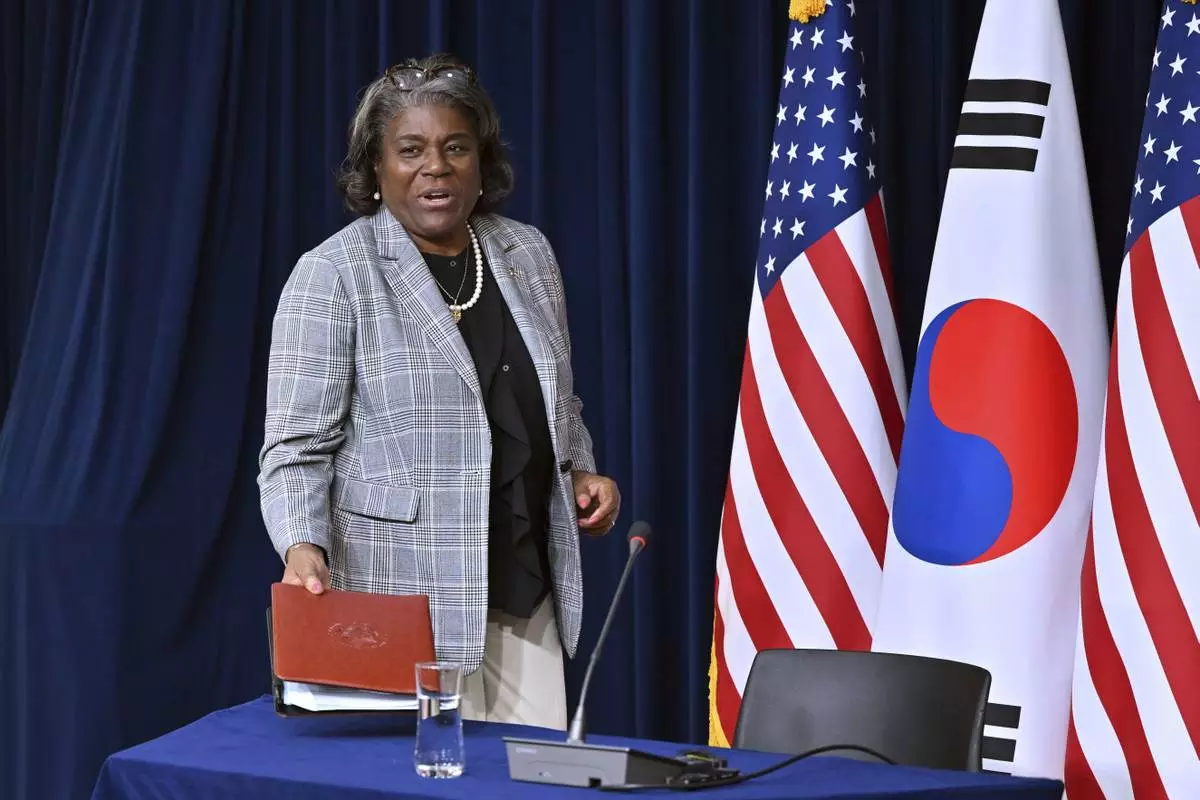
U.S. Ambassador to the United Nations Linda Thomas-Greenfield arrives to attend a press conference at the American Diplomacy House in Seoul Wednesday, April 17, 2024. (Jung Yeon-je/Pool Photo via AP)
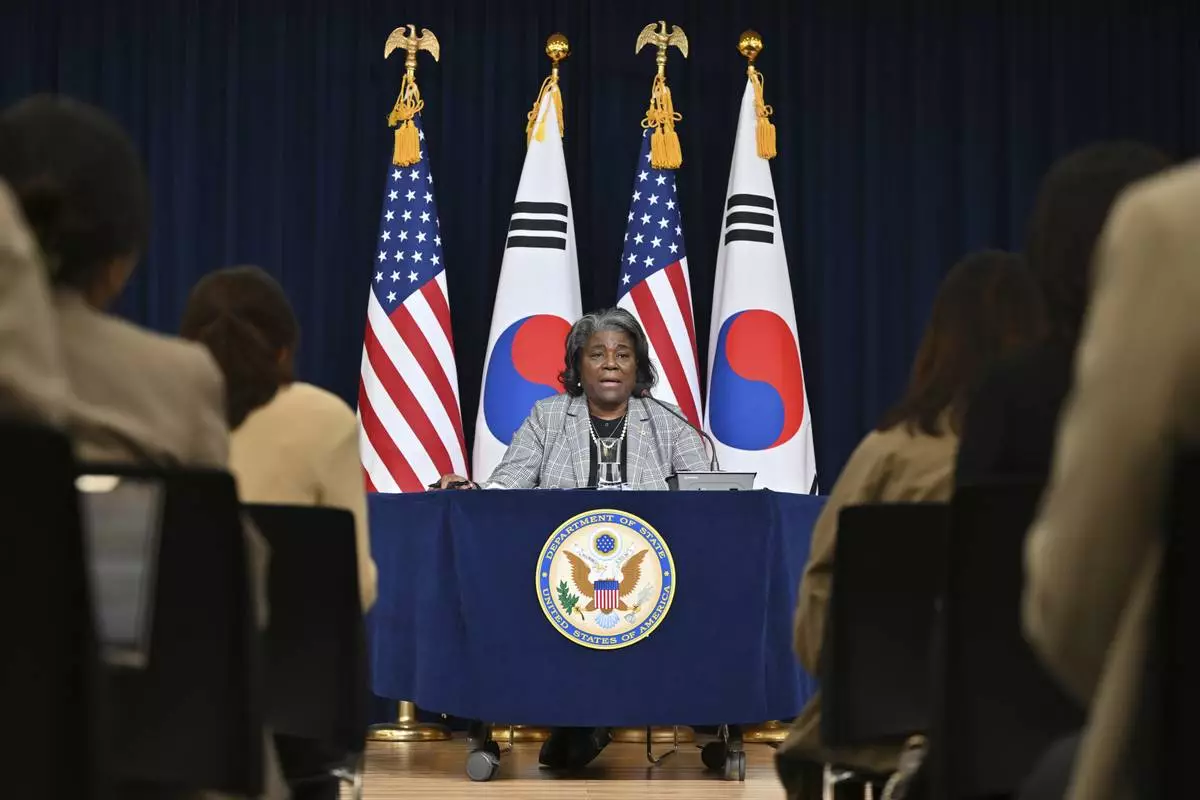
U.S. Ambassador to the United Nations Linda Thomas-Greenfield speaks during a press conference at the American Diplomacy House in Seoul Wednesday, April 17, 2024. (Jung Yeon-je/Pool Photo via AP)
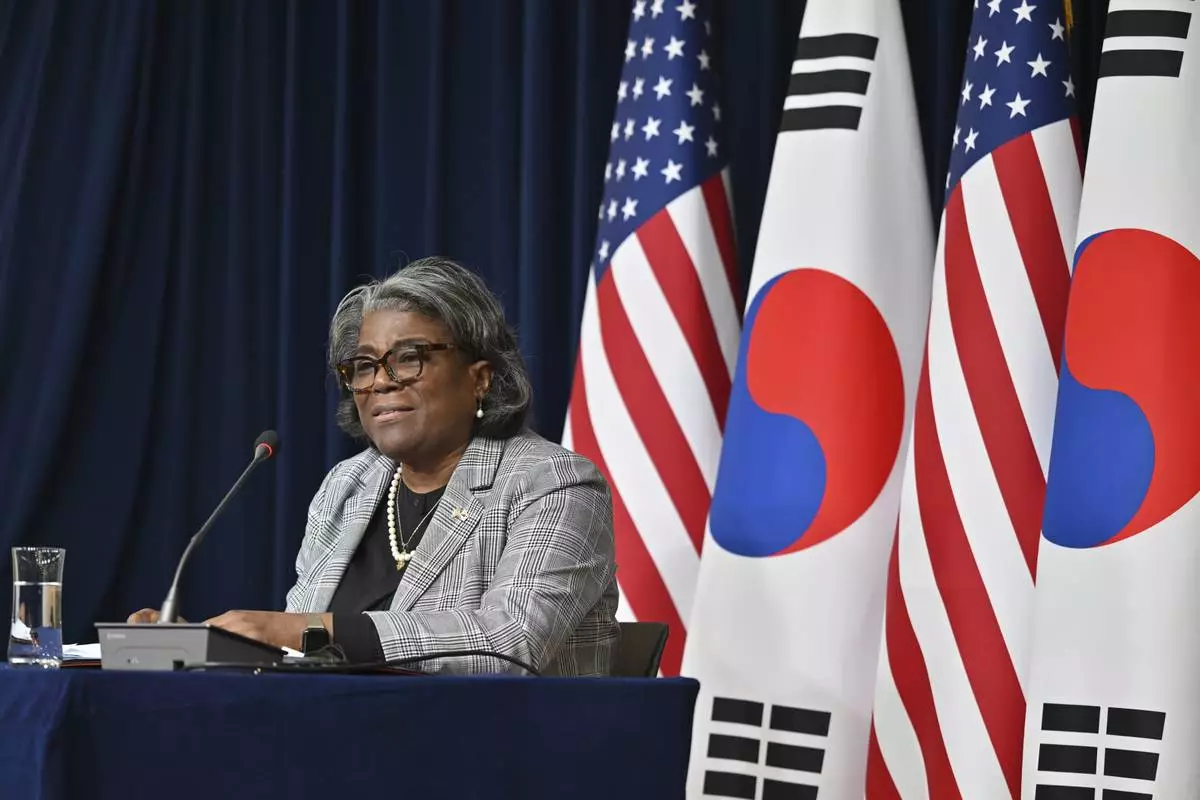
U.S. Ambassador to the United Nations Linda Thomas-Greenfield speaks during a press conference at the American Diplomacy House in Seoul Wednesday, April 17, 2024. (Jung Yeon-je/Pool Photo via AP)
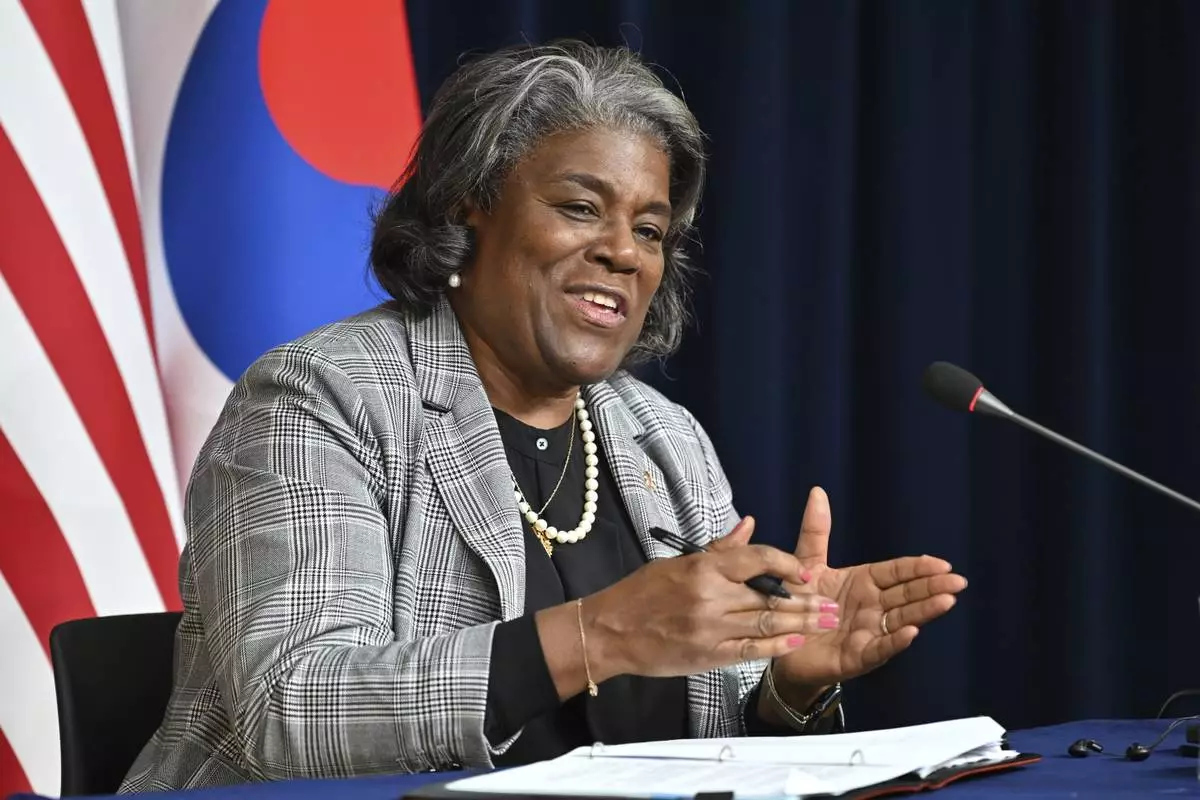
U.S. Ambassador to the United Nations Linda Thomas-Greenfield speaks during a press conference at the American Diplomacy House in Seoul Wednesday, April 17, 2024. (Jung Yeon-je/Pool Photo via AP)
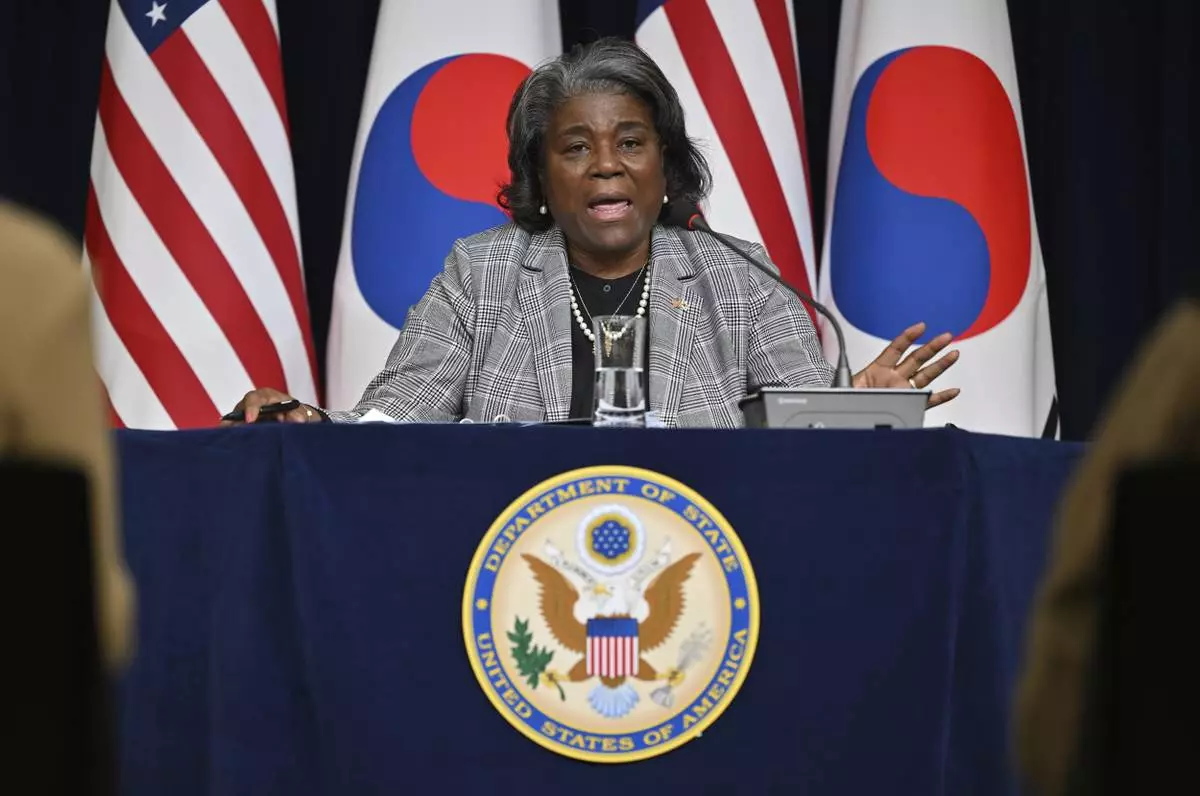
U.S. Ambassador to the United Nations Linda Thomas-Greenfield speaks during a press conference at the American Diplomacy House in Seoul Wednesday, April 17, 2024. (Jung Yeon-je/Pool Photo via AP)
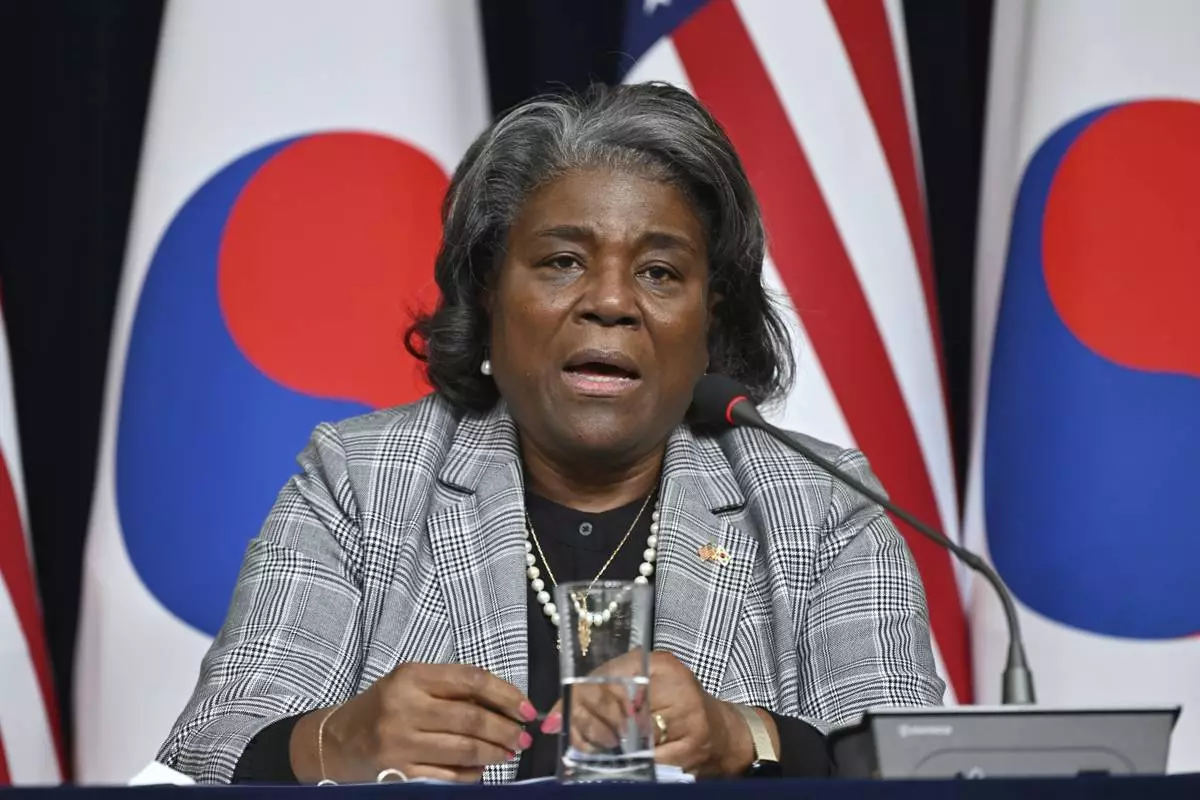
U.S. Ambassador to the United Nations Linda Thomas-Greenfield speaks during a press conference at the American Diplomacy House in Seoul Wednesday, April 17, 2024. (Jung Yeon-je/Pool Photo via AP)
The Change Healthcare cyberattack that disrupted health care systems nationwide earlier this year started when hackers entered a server that lacked a basic form of security: multifactor authentication.
UnitedHealth CEO Andrew Witty said Wednesday in a U.S. Senate hearing that his company, which owns Change Healthcare, is still trying to understand why the server did not have the additional protection.
His admission did not sit well with Senate Finance Committee members who spent more than two hours questioning the CEO about the attack and broader health care issues.
“This hack could have been stopped with cybersecurity 101,” Oregon Democratic Sen. Ron Wyden told Witty.
Multifactor authentication adds a second layer of security to password-protected accounts by having users enter an auto-generated code. It’s common on apps protecting sensitive data like bank accounts and meant to guard against hackers guessing passwords.
Change Healthcare provides technology used to submit and process billions of insurance claims a year. Hackers gained access in February and unleashed a ransomware attack that encrypted and froze large parts of the company’s system, Witty said.
The attack triggered a disruption of payment and claims processing around the country, stressing doctor’s offices and health care systems by interfering with their ability to file claims and get paid.
UnitedHealth quickly disconnected the affected systems to limit damage and paid a $22 million ransom, Witty said. The company is still recovering.
“We’ve literally built this platform back from scratch so that we can reassure people that there are not elements of the old attacked environment within the new technology," Witty said, also noting that he was “deeply, deeply sorry” for the attack.
The CEO also told senators that all of the company's core systems were now fully functional. That included claims payment and pharmacy processing.
Witty said his company had been in the process of upgrading technology for Change, which it acquired in 2022, and he was “incredibly frustrated” to learn about the lack of multifactor authentication, which is a standard across UnitedHealth.
In March, the Office for Civil Rights said it would investigate whether protected health information was exposed and whether Change Healthcare followed laws protecting patient privacy.
The company said earlier this month that personal information that could cover a “substantial portion of people in America” may have been taken in the attack.
Company officials have said they see no signs that doctor charts or full medical histories were released after the attack. But they also have noted that it may take several months of analysis to identify and notify those who were affected. UnitedHealth is offering free credit monitoring and identity theft protection for two years.
UnitedHealth Group runs one of the nation’s largest insurers and pharmacy benefits managers. It also provides care and technology services, which include the Change business.
Cybersecurity experts say ransomware attacks have increased substantially in recent years, especially in the health care sector.
Witty told senators on Wednesday that his company is “consistently” under attack.
The Associated Press Health and Science Department receives support from the Howard Hughes Medical Institute’s Science and Educational Media Group. The AP is solely responsible for all content.

Protesters hold up signs saying "Stop Denying Us Care" as Andrew Witty, Chief Executive Officer of UnitedHealth Group, front, gathers his papers after testifying at a Senate Finance Committee hearing examining cyber attacks on health care, and the Change Healthcare cyber attack, Wednesday, May 1, 2024, on Capitol Hill in Washington. The people were protesting claim denials and prior authorization requests that they say delays care. (AP Photo/Jacquelyn Martin)
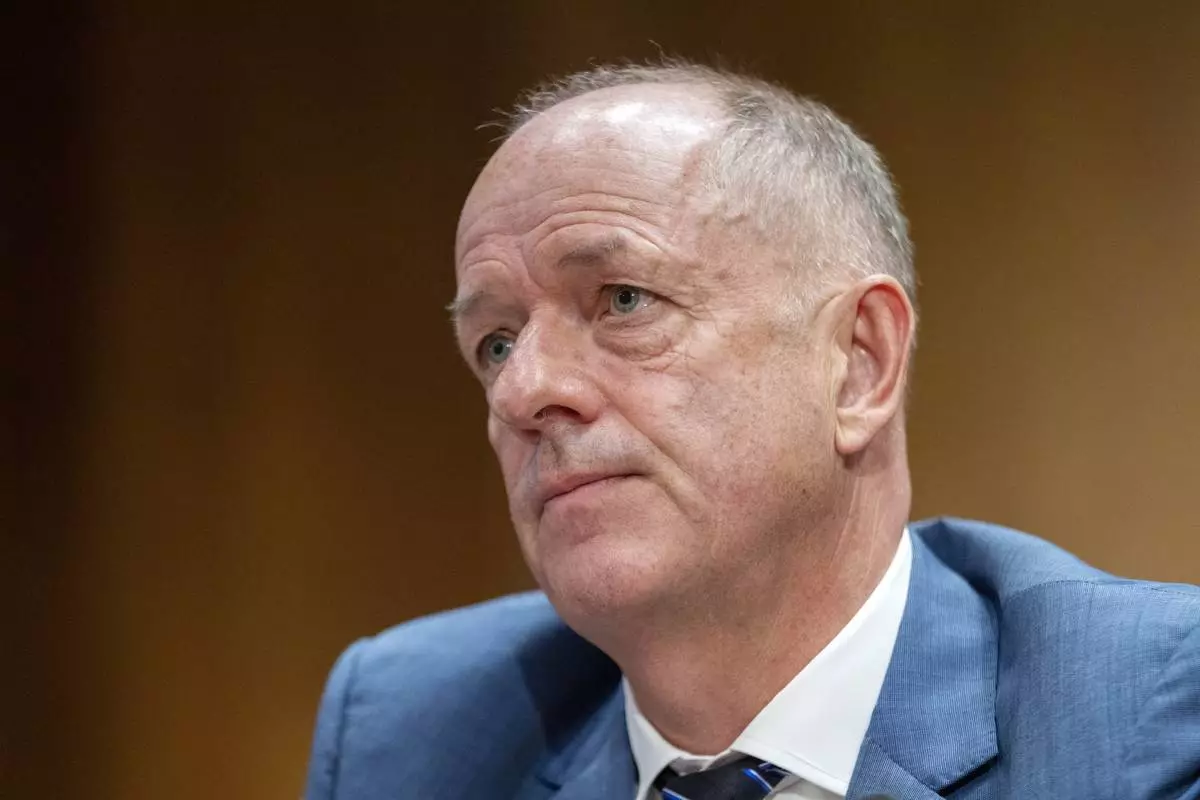
Andrew Witty, Chief Executive Officer of UnitedHealth Group, testifies at a Senate Finance Committee hearing examining cyber attacks on health care, and the Change Healthcare cyber attack, Wednesday, May 1, 2024, on Capitol Hill in Washington. (AP Photo/Jacquelyn Martin)

Protesters hold up signs saying "Stop Denying Us Care" as Andrew Witty, Chief Executive Officer of UnitedHealth Group, front, gathers his papers after testifying at a Senate Finance Committee hearing examining cyber attacks on health care, and the Change Healthcare cyber attack, Wednesday, May 1, 2024, on Capitol Hill in Washington. The people were protesting claim denials and prior authorization requests that they say delays care. (AP Photo/Jacquelyn Martin)

Andrew Witty, Chief Executive Officer of UnitedHealth Group, testifies at a Senate Finance Committee hearing examining cyber attacks on health care, and the Change Healthcare cyber attack, Wednesday, May 1, 2024, on Capitol Hill in Washington. (AP Photo/Jacquelyn Martin)

Andrew Witty, Chief Executive Officer of UnitedHealth Group, testifies at a Senate Finance Committee hearing examining cyber attacks on health care, and the Change Healthcare cyber attack, Wednesday, May 1, 2024, on Capitol Hill in Washington. (AP Photo/Jacquelyn Martin)




















